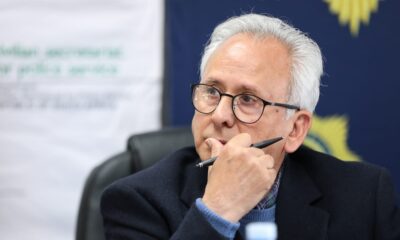Consumer controversies
“We Work on Numbers, Not Race”: Discovery Health Pushes Back After Damning Report

When a long-awaited report was released this week accusing major medical schemes of racial bias, it sent shockwaves through South Africa’s healthcare sector. Central to the findings was a serious accusation: Black healthcare providers have been unfairly targeted and treated differently by some of the country’s largest medical aid administrators, including Discovery Health.
The Section 59 inquiry, initiated after complaints were first lodged in 2019, concluded that medical aids have acted in a manner that was both unfair and racially discriminatory. While those who raised the complaints feel vindicated, Discovery Health strongly denies the allegations.
Discovery’s Defence: “We Cannot See Race”
Discovery Health’s CEO, Dr Ron Whelan, responded swiftly to the report, describing its methodology as flawed and its conclusions misleading.
“Discovery has no way of identifying the race of members or providers,” Whelan stated firmly. “We work exclusively on a numbering system.”
This assertion contrasts with the inquiry’s findings, which revealed that Black doctors had their claims unfairly withheld or subjected to more stringent audits. Whelan maintains that Discovery’s processes comply fully with legal and ethical standards.
A Long Road to Recognition
The Section 59 panel was tasked with investigating whether race influenced how medical aids treated healthcare providers. The inquiry was launched following growing pressure from organisations such as the National Health Care Professionals Association (NHCPA) and the activist group Solutionist Thinkers, which represent hundreds of affected medical professionals.
More than 200 Black healthcare practitioners, mostly doctors, supported the inquiry. They reported being routinely flagged, investigated, or having payments delayed for reasons they believe stemmed from racial profiling.
These grievances were not raised lightly. Some doctors took their concerns directly to the Minister of Health, appealing for justice and equality in a system they felt had quietly sidelined them.
“This Is a Crime Before the Law”
The emotional weight of the report’s findings has not gone unnoticed. Nomaefese Gatsheni, chairperson of the Solutionist Thinkers group, welcomed the inquiry’s conclusions with both relief and frustration.
“We are thrilled by the results but ashamed of those who have rejected the report,” she said.
Gatsheni was unequivocal: “Racial profiling and discrimination against a Black child in this country is not just an act of cruelty; it is a crime before the law.”
Her remarks highlight the deeper tensions between medical schemes and the professionals they are meant to support, especially in a country still grappling with the legacy of systemic racism.
Key Findings of the Report
The Section 59 report revealed that Black healthcare providers were disproportionately flagged for fraud, waste, and abuse (FWA). The risk ratio for Black providers being flagged was significantly higher than for their non-black counterparts.
Discovery Health’s risk ratio was reported as 1.09, but the panel considered this figure artificially low, suggesting a possible underestimation of discrimination due to how Discovery’s data was structured.
What’s Next?
While Discovery Health continues to deny the allegations, the report has sparked a broader conversation about fairness in South Africa’s healthcare industry. For many, the issue extends beyond claims and audits to questions of trust, transparency, and professional recognition within the system.
Legal experts and healthcare advocacy groups are calling for the report’s findings to prompt legislative reforms. Some urge the Health Professions Council of South Africa (HPCSA) and the Council for Medical Schemes (CMS) to take stronger action against unfair practices.
Whether Discovery and other medical aids will revise their systems remains to be seen. However, for frontline healthcare workers, particularly Black professionals, the hope is that the Section 59 findings will lead to meaningful change rather than remain mere headlines.
Also read: Minister Ramokgopa’s R509m Plan: Turning Promises Into Results
Follow Joburg ETC on Facebook, Twitter , TikTok and Instagram
For more News in Johannesburg, visit joburgetc.com
Source: eNCA
Featured Image: Freepik



























